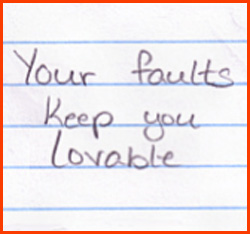The 5 Biggest Faults of Social Media
 Since social media is a fairly new medium for which to communicate ‘socially’ with friends and family, there have been many flaws in the system, and dealing with the death of one of it’s members has been one of many. The others, privacy, child safety, difficulty terminating accounts, misplaced advertising, spam, hacking and the lists go on.
Since social media is a fairly new medium for which to communicate ‘socially’ with friends and family, there have been many flaws in the system, and dealing with the death of one of it’s members has been one of many. The others, privacy, child safety, difficulty terminating accounts, misplaced advertising, spam, hacking and the lists go on.
Facebook is one who has faced multiple lawsuits because of some of these faults, all the way from similar Social Media sites, such as ConnectU, claiming that an oral contract had been broken by the founder of Facebook, Zuckerberg, copying an idea for the social network site, and used confidential source codes that were provided to him.
Not only lawsuits prevail with Facebook, the biggest Social Networking site on the Internet, but also other individual complaints continue to plague this site. Here are some of the most recent, and troubling faults:
1. Facebook’s privacy problem:
Apparently, Facebook is not holding up its part of the bargain where users privacy rights are upheld. The “frictionless sharing” is scary enough. When you leave or log out of Facebook, your browser still tracks you, and the pages you visit, which goes back as data to Facebook.
Hacker and entrepreneur, Nik Cubrilovic comments,
“Even if you are logged out, Facebook still knows & can track every page you visit. The only solution is to delete every Facebook cookie in your browser, or to use a separate browser for Facebook interactions.”
But logically, who knows about this, and who is going to delete every cookie and clear cache every time you visit Facebook? This is a pretty scary issue.
Cybersecurity is a huge risk these days as we are more and more dependent on technology and share more and more private details online. According to Aura, every 10 seconds someone becomes a victim of identity theft or fraud and 23% of victims end up having to pay for charges from fraud or identity theft.
Social media networks – including Facebook – have played their part in making cyber crime so easy and effective.
Well, that is a relief, I think.
2. Flaws in terminating accounts:
When you leave Facebook, for whatever reason you chose, you go to your account and remove your profile, thinking great, it’s gone and I don’t have to worry about it any longer. Not so. Facebook holds onto your information for an undetermined amount of time, granted the profile is inactive, however, all of your personal data stays behind.
In order to completely delete your data, so that hackers, or others cannot access it, takes extraordinary steps, to which most Facebook user would never realize.
A user has to clean their own data from Facebook, piece by piece, manually deleting all of their content on their walls, deleting one by one, their friends, and groups.
It has been also noted, that emails and other private data still remain on the Facebook servers. After a few threats of a lawsuit, though, Facebook has now allowed users to permanently delete their accounts, however, it is a good idea to remain skeptical.
3. Death of a member:
Many serious Facebook users have lost friends and close cyber friends on FB, and have been dismayed by the fact that even though they died, their profile remains, as a constant reminder, causing pain and anguish.
At the Facebook Help Center – family members have a couple of options when handling their loved one’s account. They are allowed to completely remove the account, because it causes less pain to friends and family.
Mourning in the social media setting is unique to any other type of grieving, because not being able to attend a funeral, or a memorial can sometimes makes the grief linger. Users should start considering what they would want done with their Internet presence should they pass away. With everything so new, and an Internet life that will no longer need to exist, should we start adding these decisions to our Wills?
Families should ask loved ones, or it should be stated, either verbally or in writing whether you want the plug pulled on your internet social sites, along with whether you would like to be resuscitated, because keeping your presence alive, after you’re gone can be kind of eerie.
A few people have begun doing memorial sites for the lost loved ones. They keep the profile up, and a friend or family member posts information about the death, the funeral, and tidbits about their life in an effort to inform and ease the pain of loss of cyber friends. This can be a healing method of saying goodbye as well.
Facebook’s rule previously about death, was that 1 month after a person was deceased, their profile needed to be removed. They have recently amended their rules, and now allow a deceased friends profile to remain online so that friends can post condolences and the profile is placed in a “memorialization state.” This is a great way for some to mourn. However, a family member can remove the profile when they choose.
4. Tagging:
The automatic tagging feature is annoying to say the least. People continually tagging you in photos and notes without your consent can bring a lot of chaos to your activities.
If you dislike being tagged in anything, without doing it yourself, you have to personally disable the feature. It is called the opt-out and the privacy rules are presently being investigated for possible privacy violations, meaning this process may become obsolete. I hope that it does.
5. Identity theft
This has been done over and over to many people who are Facebook users. Hackers creating an account to impersonate someone else, for mischievous reasons or just to harass them, sometimes knowing the person, sometimes just for fun.
The problem with this is that getting into a user account opens up a whole world of information to them, personal information and can lead to identity theft. Facebook is well known for being a great source for identity theft.
Remember, there are security settings galore on Facebook, as well as other networking sites. Taking the extra time to set up your privacy preferences and account preferences that you feel comfortable with, is the first step in avoiding inconveniences while you’re socializing!
Kristy Ramirez is a freelance technology and finance writer for Life Insurance Finder, ever wondered what happens to your online accounts when you die?
cc licensed ( BY ) flickr photo shared by The Love In Her Eyes
Posted in Social Networking.
No Replies
Feel free to leave a reply using the form below!

